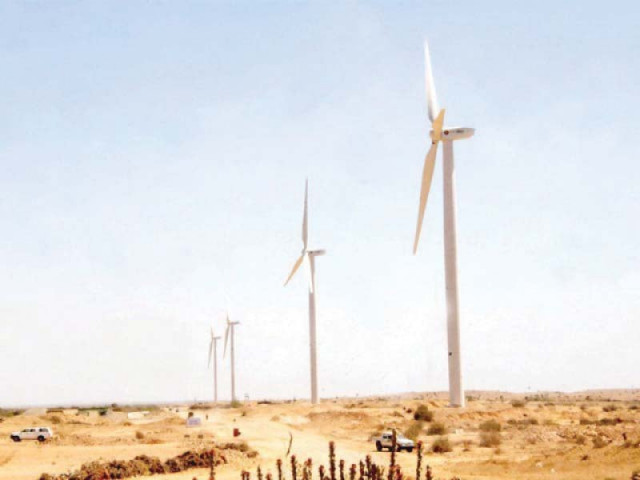Govt scraps upfront tariffs for renewable energy
Will now give power production contracts through competitive bidding

Leghari dismissed the talk of load-shedding as mere propaganda, emphasising there were no power outages in any part of the country except for high-loss areas. PHOTO: FILE
After December 12, the government would not be liable to purchase electricity from renewable energy projects with upfront tariff or previous arrangements and they would have to win the contract through competitive bidding, announced Federal Minister for Power Division Awais Ahmed Khan Leghari at a press conference on Wednesday.
Flanked by Minister of State Chaudhry Abid Sher Ali, Leghari recalled that under the Renewable Energy Policy 2006, an upfront tariff regime was introduced to promote new technology and tackle power shortages.
CM wants to forget past and look to future
“As the technology evolves and technical data is made available, it is high time that the tariff regime is changed and more competition is brought while promoting renewables in the national grid,” he said.
Earlier, special tariff rates were offered to power generation companies in the form of upfront tariff which encouraged them to make investment in Pakistan. Now, the situation has improved as the country has “surplus electricity” and the Cabinet Committee on Energy has approved the change in rules.
“It’s time to honour our promise of cheap electricity and now investors will be invited for competitive bidding in order to ensure the lowest rates and pass maximum benefit on to consumers,” Leghari said.
The Renewable Energy Policy 2006 (amended in 2013) covers solar, wind, bagasse and small hydroelectric power projects. The policy envisages mandatory purchase of electricity and forces the power purchaser to bear hydrology risks to small hydel projects and risks to wind speed and solar energy.
Until now, the tariff regime was either upfront or cost-plus where the wind energy upfront tariff was Rs6.74 per unit, bagasse tariff Rs7.97 per unit and small hydel project tariff about Rs12 per unit.
It is expected that new tariffs will go down in competitive bidding. Hydel plants with less than 50-megawatt generation capacity will have to go through the bidding process.
“Within the next eight weeks, you will see competitive bidding for the award of 400MW wind and 600MW solar energy projects,” Leghari said.
According to the minister, the new policy will have a great impact on meeting energy needs of the country at affordable prices. “This is just the beginning and the government will introduce more such programmes in coming months,” he remarked.
Responding to a question, Leghari dismissed the talk of load-shedding as mere propaganda, emphasising there were no power outages in any part of the country except for high-loss areas.
He pointed out that the Power Division was losing about Rs135 billion annually mainly on account of theft and its burden was shared by millions of Pakistanis.
All efforts were being made to stop the theft and letters had been written to provincial chief ministers asking them to frame a strategy in collaboration with the departments concerned including the law enforcement agencies, he said.
Energy sector may finally draw Turkish investors to Pakistan
Apart from this, the government is planning to outsource or lease electricity feeders to prevent theft.
To avoid over-billing, the government has also planned to introduce a computerised system under which every consumer will get details of his electricity consumption on the mobile phone. Abid Sher Ali, while explaining prolonged load-shedding in some parts of Khyber-Pakhtunkhwa (K-P), said 126 feeders in the province were running on 85% loss. In addition to this, tripping and low-voltage problems occur in Mardan, Chakdara, Swat and Dir.
Ali argued that the construction of a grid station in K-P was delayed due to the provincial government which could not provide land for three years. Now, he said, the land had been provided and the federal government would complete the project in one year.
The setting up of planned grid stations in Chakdara would help end low-voltage complaints and tripping of feeders, he said.
Published in The Express Tribune, December 14th, 2017.
Like Business on Facebook, follow @TribuneBiz on Twitter to stay informed and join in the conversation.



















COMMENTS
Comments are moderated and generally will be posted if they are on-topic and not abusive.
For more information, please see our Comments FAQ